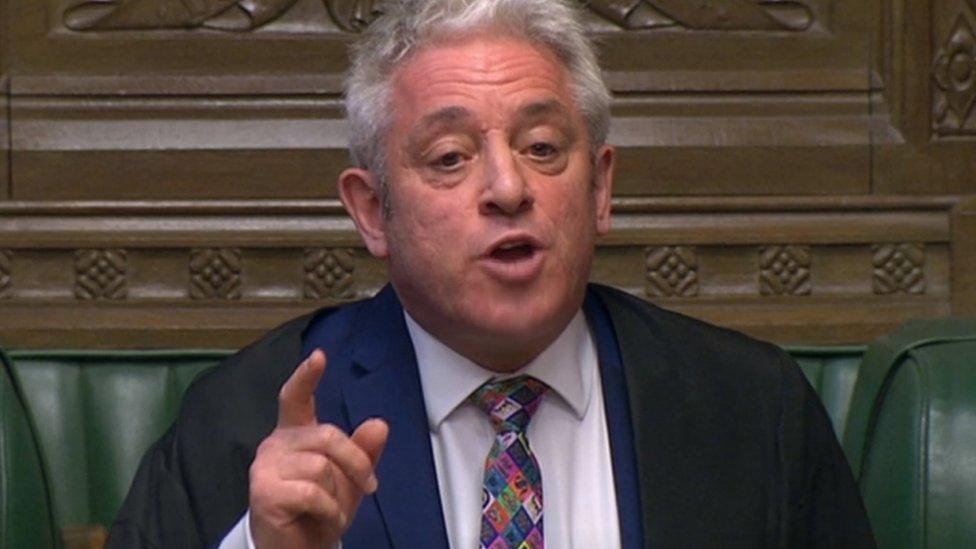Brexit: What John Bercow's intervention means for May's deal
- Published

Never afraid of stoking controversy, the Speaker has again infuriated many Tory MPs with his latest surprise pronouncement to the Commons.
Just as it seemed the government was poised to try and get its Brexit deal through again, John Bercow took it upon himself to tick ministers off before they had even tried.
Why?
Because last week he ruled the deal could not be brought back to the Commons for a third time without "substantial" changes.
Mr Bercow's intervention today suggests he doesn't think that test has yet been met.
But No 10 disagrees and points to the additional backstop guarantees agreed at a summit in Strasbourg, and formally approved by the EU last week.
It's clear the date of Brexit has changed too. It will be 22 May if the withdrawal agreement is passed by the Commons this week and 12 April if not - unless there is a further extension.
With so little time, there is some incredulity around Parliament that the Speaker is sticking so rigidly to his ruling.
The government was considering a procedural move that could have proved MPs wanted to have a vote, regardless of the parliamentary convention. But John Bercow said that wouldn't do.
Hannah White from the Institute for Government said that while the Speaker is the ultimate authority on parliamentary procedure, "the government ought to be allowed to test the will of the House on whether to set aside its own rule".
So what happens next?
It still seems likely the government will have another crack at getting its deal through the Commons before Friday night.
Tory opposition to the agreement seems to be crumbling at the same rate interest in alternative forms of Brexit is growing.
Many Tory Brexit-enthusiasts who hate the withdrawal agreement are now very worried the indicative vote process might lead to a long extension and possibly no Brexit altogether.
No 10 will only bring the deal back for a third vote if it thinks it could pass. That probably requires DUP backing and a guarantee some Labour MPs will vote for it too.
As it stands, there isn't yet a majority for the deal, but the mood is shifting fast.
It is possible the government attempts to pass the withdrawal agreement on its own - detaching the non-binding political agreement MPs are arguing over now from the terms of divorce.
That may well satisfy the EU's deadline and allow MPs time to continue their wrangle over the sort of future relationship they want after Brexit.
- Published27 March 2019